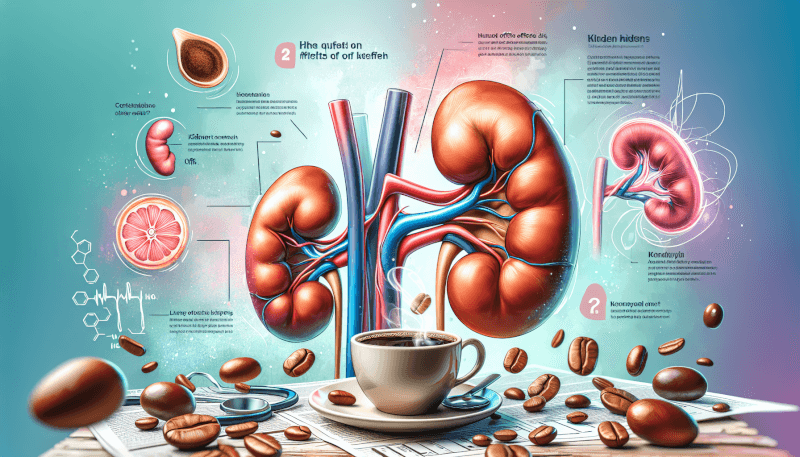Are you a coffee lover who can’t go a day without your morning cup of joe? If so, you may have wondered whether your caffeine habit is taking a toll on your kidneys. In this article, we’ll explore the potential impact of coffee on your kidney health, helping you better understand the relationship between your favorite beverage and this vital organ. So, grab your mug, sit back, and get ready to uncover the truth about whether coffee is hard on your kidneys.
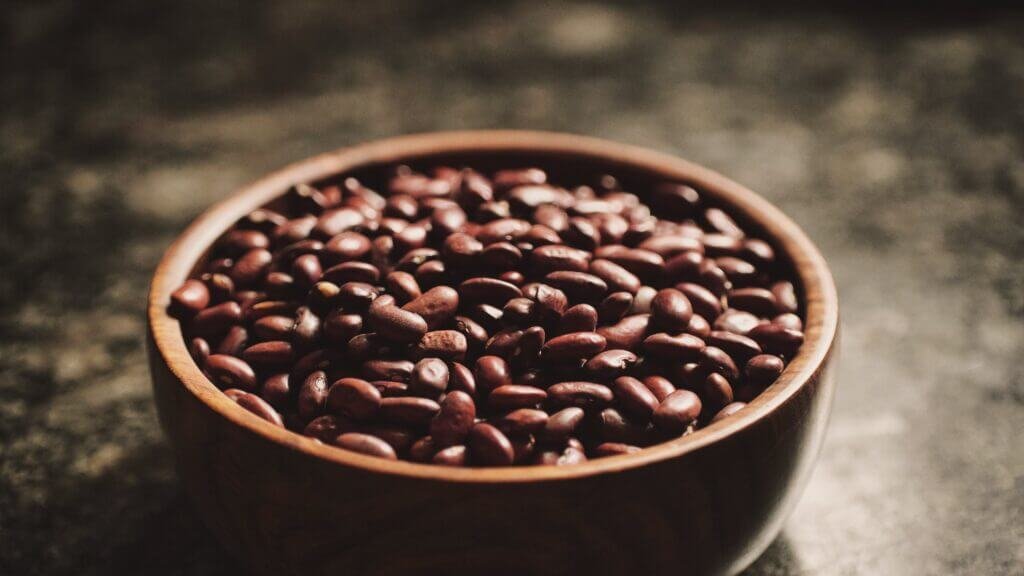
Effects of Coffee on Kidneys
Increased Urine Production
One of the noticeable effects of coffee on the kidneys is increased urine production. When you consume coffee, the caffeine stimulates your kidneys to produce more urine. This diuretic effect can be beneficial for individuals who may need to flush out toxins from their body or reduce water retention. However, it is important to note that excessive consumption of caffeine from coffee or other sources can lead to dehydration, which can put additional strain on the kidneys.
Diuretic Properties
The diuretic properties of coffee are attributed to its caffeine content. Caffeine acts as a mild diuretic, meaning it increases urine production and helps eliminate excess fluid from the body. While this can be beneficial in certain situations, such as reducing edema or bloating, it is crucial to maintain proper hydration to support overall kidney function. If you consume coffee regularly, it is essential to drink enough water to replenish the fluids lost through increased urine production.
Potential Dehydration
Coffee’s diuretic effect can potentially contribute to dehydration if you consume it in large amounts without adequately hydrating yourself. Dehydration can strain the kidneys and affect their ability to function optimally. To prevent dehydration, it is important to balance your coffee consumption with an adequate intake of water or other hydrating fluids. This is especially crucial for individuals who have pre-existing kidney conditions or are prone to dehydration.
Kidney Stones and Coffee Consumption
Caffeine and Calcium Absorption
One concern regarding coffee consumption and kidney health is its potential impact on calcium absorption. High levels of caffeine can interfere with calcium absorption in the body, which can potentially lead to an increased risk of kidney stone formation. However, the research on this topic is inconclusive, and the effects may vary from person to person. It is advisable to maintain a balanced diet and consult with a healthcare professional regarding your specific dietary needs if you have a history of kidney stones.
Effects on Oxalate Levels
In addition to the potential impact on calcium absorption, coffee consumption has also been associated with higher oxalate levels in the urine. Oxalate is a substance that can contribute to the formation of kidney stones, particularly calcium oxalate stones. However, it is important to note that the overall impact of coffee on kidney stone risk is still debated among researchers. Individuals who are prone to kidney stone formation may want to monitor their coffee consumption as part of their overall management plan.

Blood Pressure and Kidneys
Impact of Coffee on Blood Pressure
Coffee consumption has been associated with temporary increases in blood pressure due to its caffeine content. While these increases are usually mild and temporary, they can potentially impact kidney health over time. High blood pressure is a risk factor for developing kidney disease, as it can damage the blood vessels in the kidneys and impair their function. It is important for individuals with high blood pressure or a history of kidney disease to monitor their coffee intake and consider alternative options if necessary.
Relation to Kidney Health
Maintaining healthy blood pressure levels is crucial for kidney health. While coffee consumption may temporarily increase blood pressure, it is important to consider the overall impact of lifestyle habits, such as diet and exercise, on blood pressure regulation. If you have concerns about your kidney health or blood pressure, it is advisable to consult with a healthcare professional who can provide personalized guidance based on your specific needs.
Acidic Nature of Coffee
Impact on Kidney Function
Coffee is considered to be slightly acidic, which can potentially affect kidney function. However, the impact of coffee’s acidity on kidney function is generally mild and may not pose significant risks to individuals with healthy kidneys. If you have a pre-existing kidney condition or concerns about your kidney function, it is important to consult with a healthcare professional who can provide personalized advice based on your specific situation.
Coffee and Acidosis
Acidosis is a condition characterized by an imbalance in the body’s pH levels, resulting in increased acidity. While excessive consumption of highly acidic beverages or foods can contribute to acidosis, the occasional consumption of coffee is unlikely to cause significant imbalances. However, individuals with certain kidney conditions or acid-base imbalances should exercise caution and discuss their coffee consumption with a healthcare professional to ensure it aligns with their overall treatment plan.
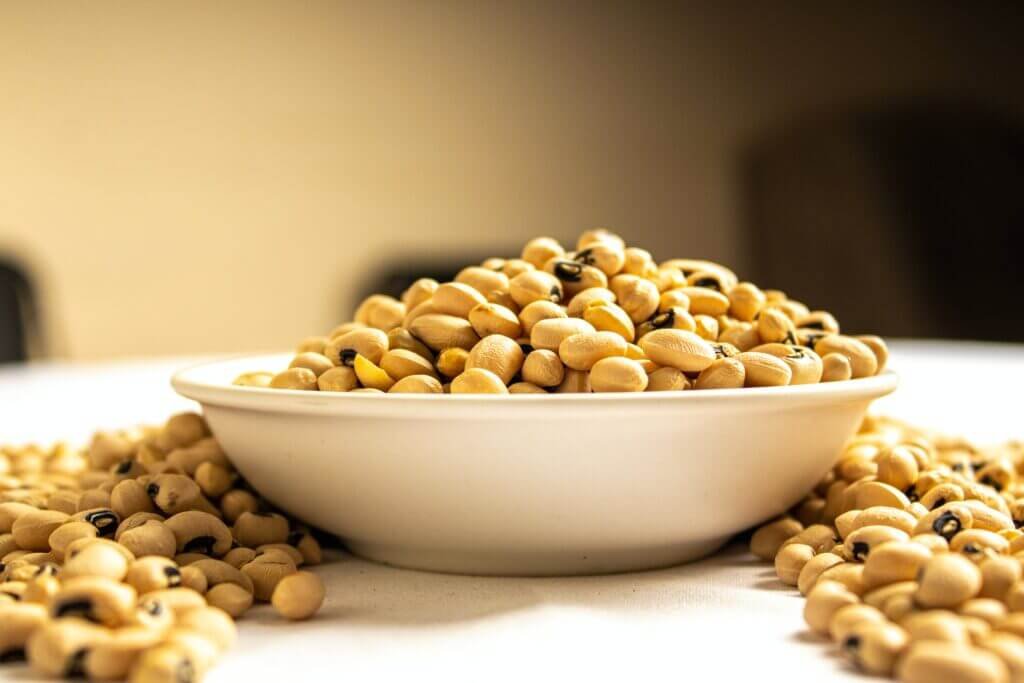
Caffeine and Kidney Function
Effect on Glomerular Filtration Rate
The glomerular filtration rate (GFR) is a measure of the kidney’s efficiency in filtering waste products from the blood. Some studies suggest that caffeine consumption can temporarily increase GFR due to its effects on blood flow and blood vessels. However, these changes are generally considered within the normal range and do not pose significant risks to individuals with healthy kidneys. It is important to note that individuals with kidney disease or impaired kidney function may need to monitor their caffeine intake more closely.
Caffeine Sensitivity
Individuals may vary in their sensitivity to caffeine, and some individuals may be more prone to experiencing the effects of caffeine on kidney function. If you have concerns about how caffeine may affect your kidneys, it is advisable to pay attention to your body’s response to coffee consumption and consult with a healthcare professional who can provide personalized guidance based on your specific circumstances.
Coffee and Proteinuria
Relationship between Coffee Consumption and Protein in Urine
Proteinuria is a condition characterized by the presence of high levels of protein in the urine. While coffee consumption has not been directly linked to proteinuria, excessive caffeine intake can potentially affect kidney function, which may indirectly contribute to proteinuria. It is important to maintain a balanced diet and monitor your caffeine intake if you have concerns about your kidney health or protein levels in the urine.
Potential Kidney Damage
Excessive caffeine consumption, whether from coffee or other sources, can potentially lead to kidney damage over time. The kidneys play a crucial role in filtering waste products from the blood, and excessive caffeine intake may put additional stress on these organs. It is important to consume coffee in moderation and consider your overall caffeine intake from other sources, such as tea, sodas, or energy drinks.
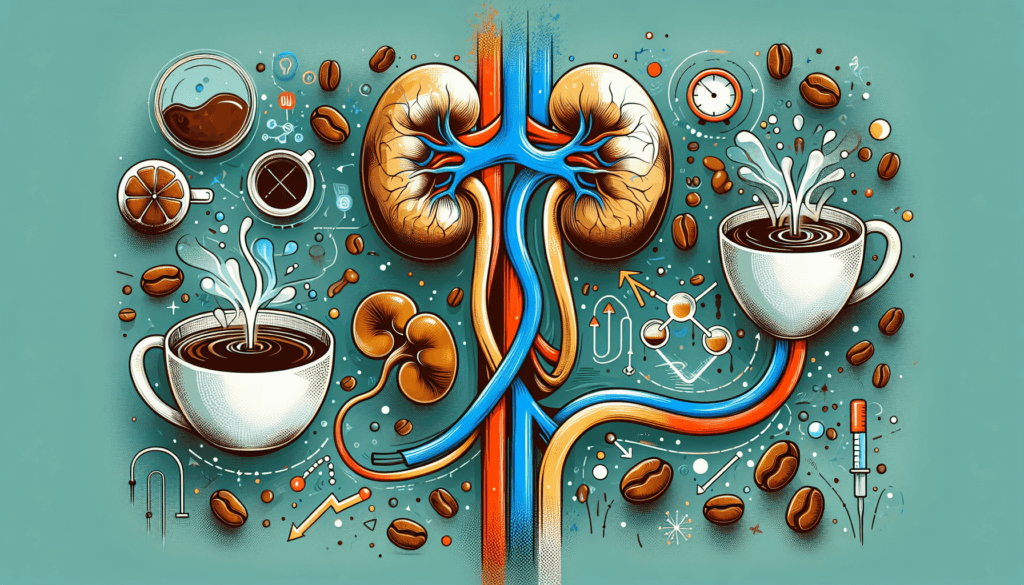
Coffee and Chronic Kidney Disease
Association with CKD Progression
Chronic kidney disease (CKD) is a long-term condition characterized by the gradual loss of kidney function. Some studies suggest that excessive coffee consumption may be associated with an increased risk of CKD progression in individuals already diagnosed with the condition. However, the relationship between coffee and CKD progression is complex, and more research is needed to fully understand the potential impact.
Caffeine and GFR Decline
Glomerular filtration rate (GFR) decline is a common characteristic of chronic kidney disease. While coffee consumption has been associated with temporary increases in GFR, its long-term effects on GFR decline in individuals with CKD are still not fully understood. If you have CKD, it is advisable to discuss your coffee consumption with a healthcare professional who can provide personalized guidance based on your specific needs and condition.
Interaction with Medications
Effects of Coffee on Kidney Medications
Certain medications used to manage kidney conditions, such as diuretics or blood pressure medications, can interact with coffee or its components. Coffee consumption may affect the absorption, metabolism, or elimination of these medications, potentially altering their efficacy or increasing the risk of side effects. It is crucial to consult with a healthcare professional about possible interactions between your medications and coffee to ensure optimal treatment outcomes.
Influence on Diuretics
Coffee’s diuretic properties can potentially interact with diuretic medications used to manage conditions such as hypertension or edema. The combined effect of coffee and diuretics may increase urine production and potentially contribute to dehydration or electrolyte imbalances. It is important to discuss your coffee consumption and medication regimen with a healthcare professional who can provide individualized guidance based on your specific situation.
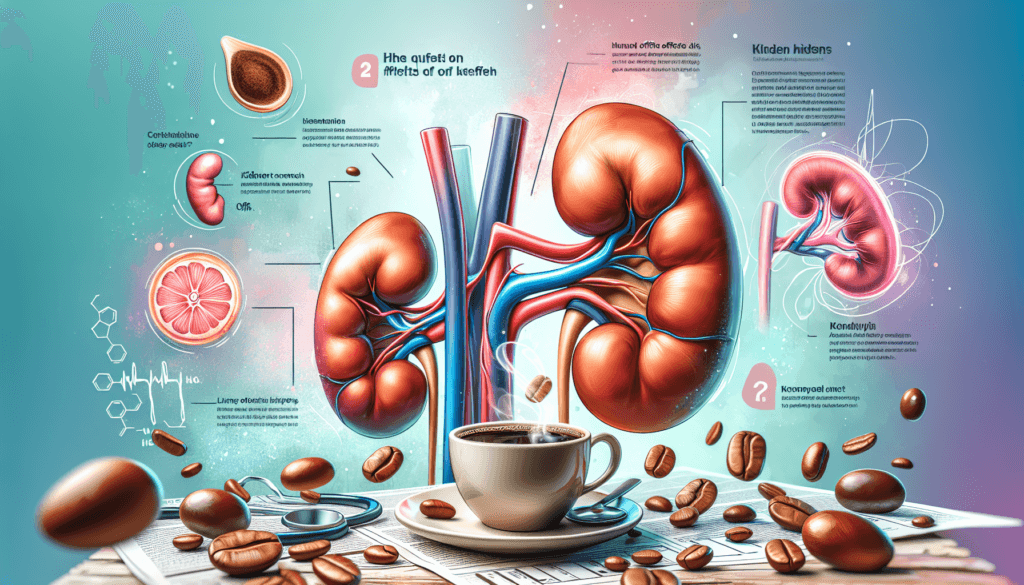
Coffee and Kidney Function in Diabetes
Effectiveness in Preventing Kidney Disease
Coffee consumption has been associated with a potential protective effect against the development of kidney disease in individuals with diabetes. Some studies suggest that moderate coffee consumption may reduce the risk of diabetic kidney disease, a common complication of diabetes. However, it is important to note that individual responses may vary, and excessive coffee consumption should be avoided, especially in individuals with pre-existing kidney conditions.
Impacts on Diabetic Kidney Damage
In addition to its potential preventive effects, coffee consumption has also been linked to reduced markers of kidney damage in individuals with diabetes. Compounds found in coffee, such as chlorogenic acids and caffeine, may have antioxidant and anti-inflammatory properties that could benefit kidney health. It is important to note that the overall impact of coffee on diabetic kidney damage may vary among individuals, and it is advisable to consult with a healthcare professional regarding your specific situation.
Conclusion
Moderation is Key
When it comes to coffee consumption and its effects on kidney health, moderation is key. While coffee has both potential benefits and risks for the kidneys, it is important to consume it in moderation and consider individual factors such as pre-existing kidney conditions, overall health, and medication use. Maintaining a balanced diet, staying adequately hydrated, and consulting with a healthcare professional are crucial steps in promoting optimal kidney health.
Consultation with Healthcare Professionals
If you have concerns about the impact of coffee on your kidneys or have pre-existing kidney conditions, it is important to consult with a healthcare professional. They can provide personalized guidance based on your specific needs and help you navigate the potential benefits and risks associated with coffee consumption. Remember, everyone’s body and health circumstances are unique, so it is essential to seek individualized advice from a healthcare professional.

